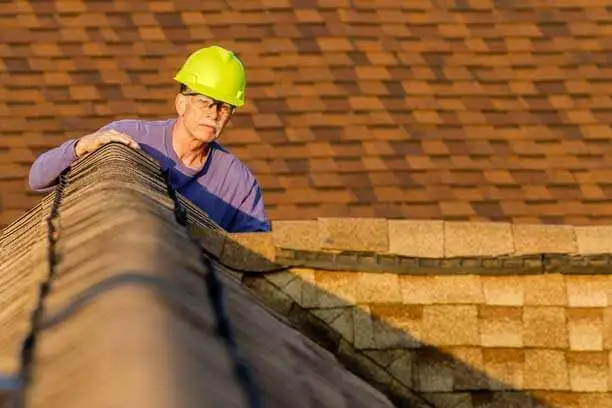Can Your Roof Affect Your Home Insurance?


Your roof is what stands between your home and the elements. As a result, your roof’s age and condition can impact how much you pay for homeowners insurance. Before you buy a new-to-you home, it’s important to understand the factors that impact your roof’s longevity. Depending on its age and condition, your insurance company may require a roof inspection before approving your policy — that’s how important your roof is. Read on to discover how roof requirements may affect your homeowners insurance premiums.
Here’s what to look for when reviewing the health and integrity of a roof.
The age of your roof could affect your insurance rates. The older your roof, the more likely it is to succumb to damage — and the more expensive it is to insure. The average life expectancy of a roof ranges from 25-50 years depending on the climate and materials used. Depending on your roof’s age and condition, it could even be ineligible for coverage. Reroofing your home can help reduce your insurance premiums, so it is important to tell your insurance provider if you get a new roof.
An older roof with issues like leaks, algae and missing or damaged shingles may present challenges, like not qualifying for possible discounts a newer roof could provide, leading to higher insurance premiums. Loose or missing shingles or damage to the materials will often lead to moisture seeping into your attic or ceiling crawlspace. If left untreated, these could lead to wood rot and mold, and require expensive repairs. Significant wear and tear could make your roof uninsurable.
Gable roofs and hip roofs are the two most common roof types. Their different designs affect their susceptibility to damage. Hip roofs tend to perform better during windstorms and this roof shape may have insurance discounts available in coastal areas. The more complex a roof shape is, the more it can cost to replace due to waste factors and labor time required during replacement.
Roofing material is perhaps the most important factor to longevity and roof types can have a big impact on home insurance rates. The following options vary greatly in cost, durability, protection, sustainability and insurability.
If your roof is old or damaged, you’re probably trying to figure out if it needs to be replaced entirely or if it’s possible to repair the damage. Unfortunately, it’s hard to determine whether your roof needs to be repaired or replaced without the advice of a professional.
If you identify multiple indications of damage, that might be a sign that it’s time to invest in a new roof. Roof replacements can cost anywhere from $5,000 to $25,000, but some of that money can be recouped via lower insurance rates. Since a new roof is more likely to keep your home safe from damage, insurance companies are likely to offer a lower rate for homes with new roofs.
Before you go through with the installation of a new roof, talk to your Farm Bureau agent about potential discounts. They’ll explain how a new roof and specific materials can affect your homeowners insurance premiums.